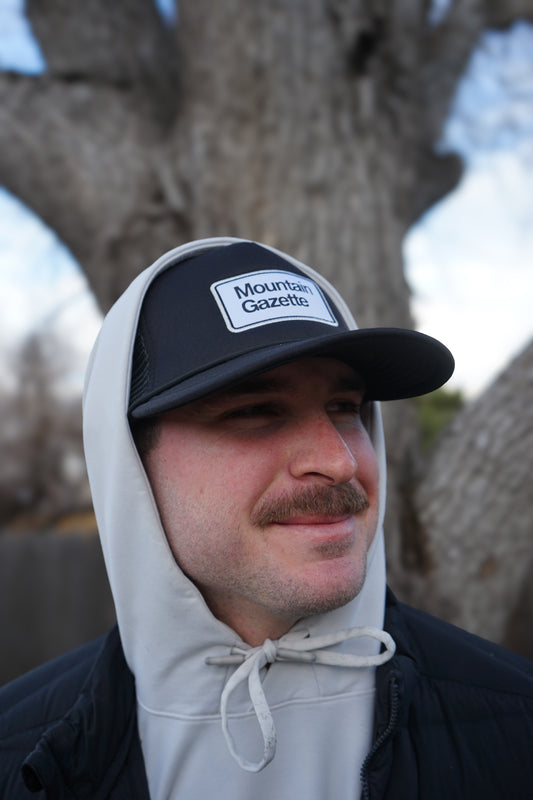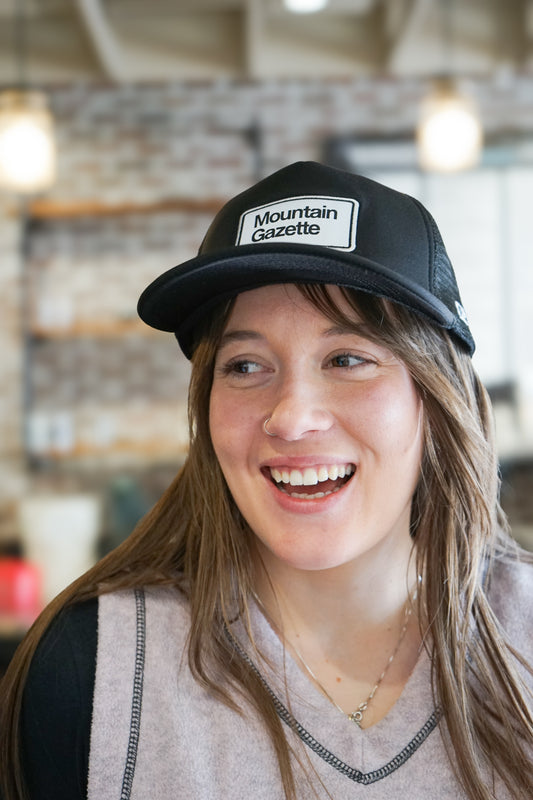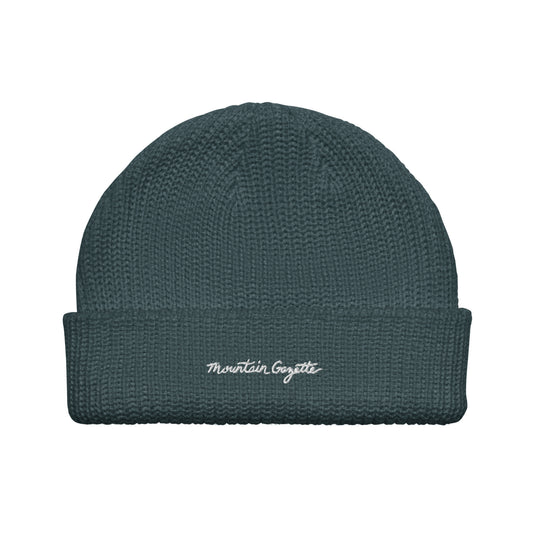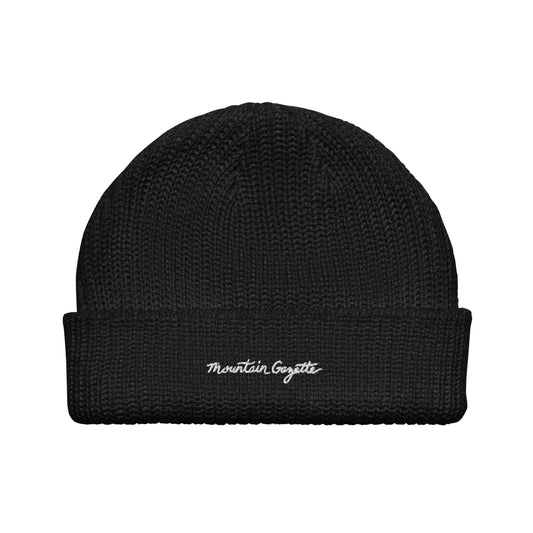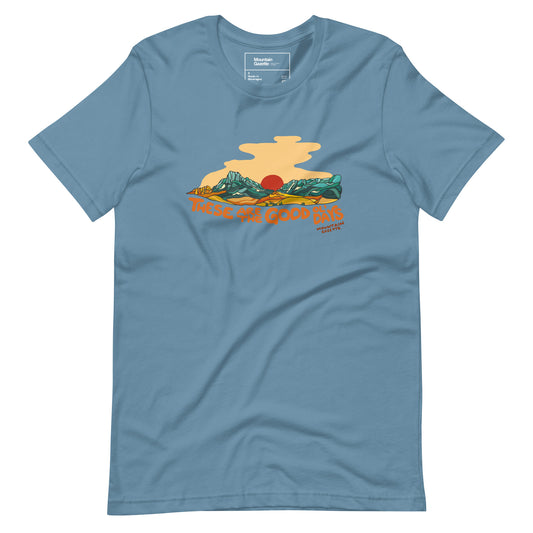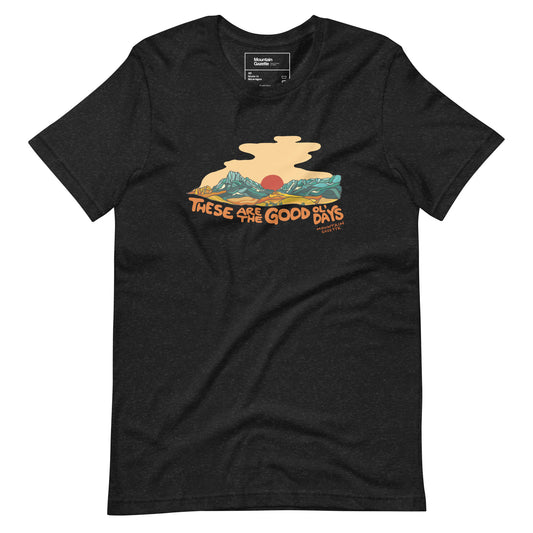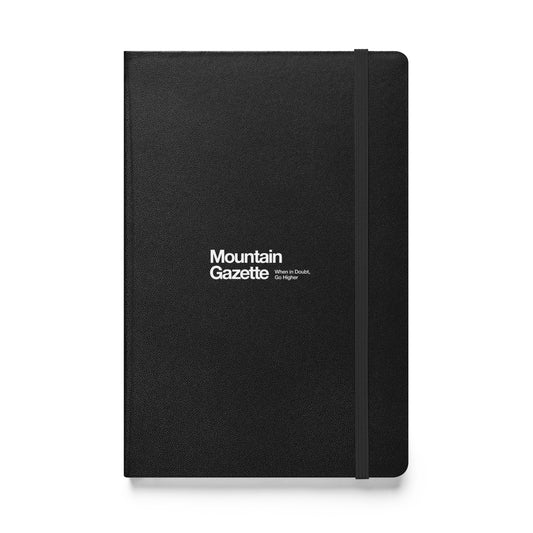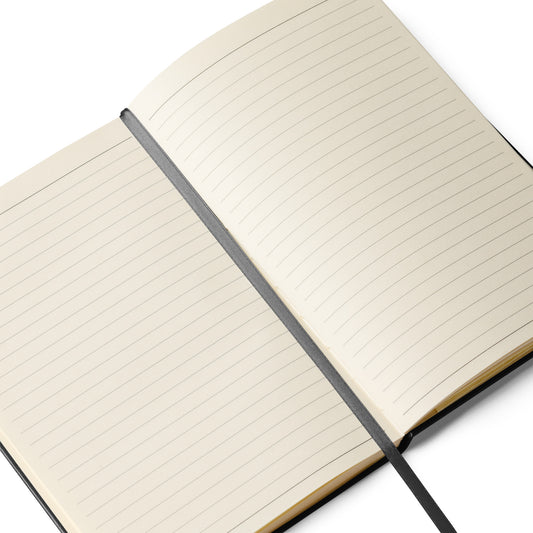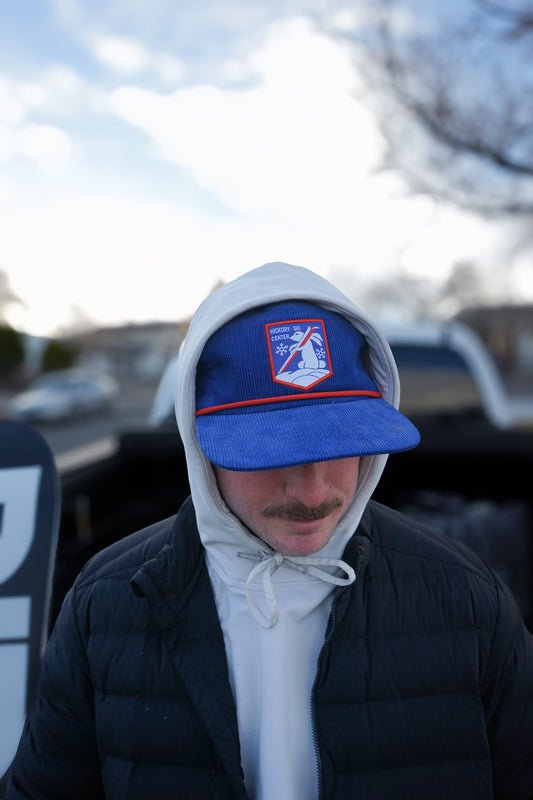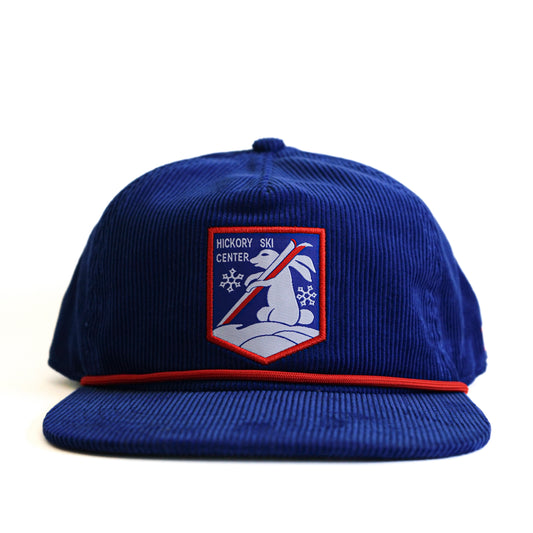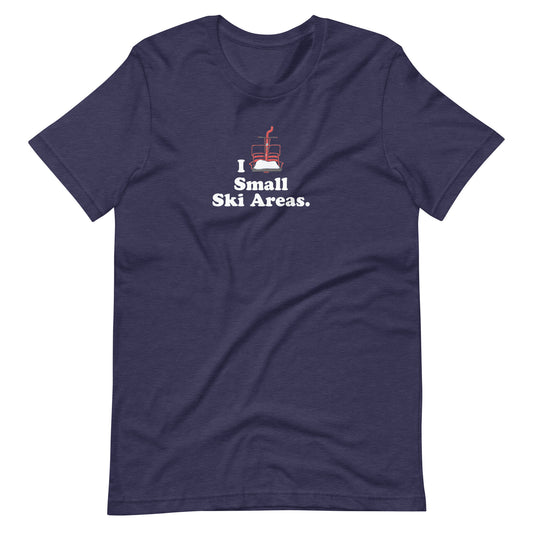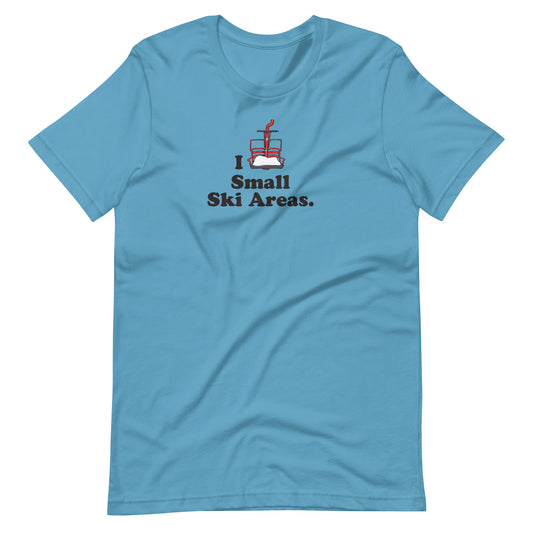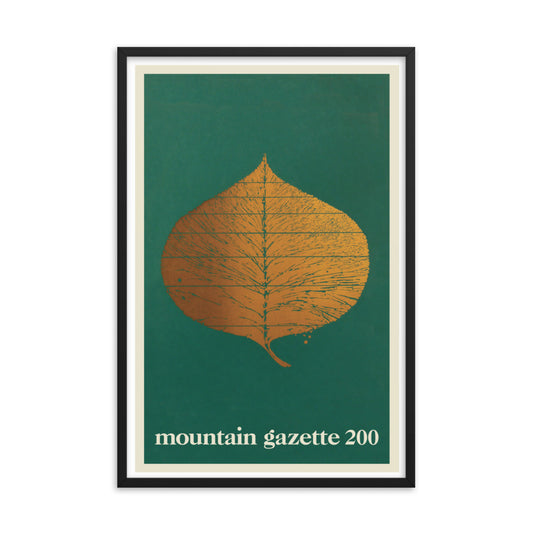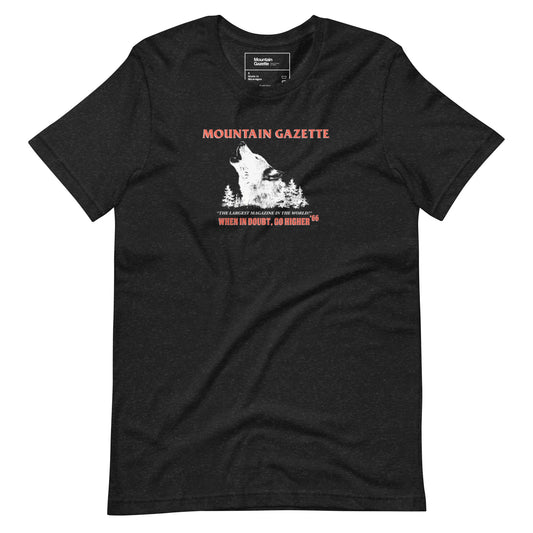By Hannah Truby
Had you told a younger Rachel Sturtz that she would one day become an investigative reporter, she would have politely called you crazy. But after writing an essay about an inappropriate college track coach, Sturtz couldn’t turn back if she wanted to.
"I felt it was my responsibility to help by telling these stories," Sturtz says.
Sturtz’s profile pieces, travel stories, and gear guides have garnered bylines in over 40 national and regional publications. A Mountain Gazette contributor, she is especially acclaimed for her award-winning investigative pieces exposing misconduct and abuse in the sports and outdoor industries. Among these include “Unsafe Space", where she examined sex, abuse, and power dynamics in the outdoor industry, and “Unprotected”, a 13,000-word exposé that unveiled a criminal cover-up of athlete abuse by the U.S. Olympic Committee.
Though her work often deals with topics weighty and dark, there’s a lightness to Sturtz, a kindness that filters through my computer screen during our conversation.
In this week's interview, Rachel Sturtz reflects on her journey into journalism, how she began telling the hard stories, and her favorite way to “take the edge off”.

Mountain Gazette: I am curious to hear about your journey. How did you decide to pursue journalism?
Rachel: It’s funny—I went to college thinking I was going to be a nurse, but I ended up having to drop chemistry. I think it was my senior year when I took my first expository essay writing class and found I absolutely adored it. I had this great teacher who had written for McSweeney's, and he described the difference between a good Vanity Fair article and a bad one; he said a bad article would be about Charlton Heston’s gun politics, but a good one would be about Heston’s gun politics through a description of the furniture in his home. I'd never heard anyone put it quite like that—I loved the idea of taking someone’s story and incorporating the creative side of fiction.
What was your first big gig?
I worked for a small regional magazine in northern Michigan for a few years. After that, I sold my car, packed a duffel bag, and moved to New York to hopefully break into the magazine industry. I eventually met with an associate editor at Esquire. It was just a 15-minute chat, but the next week, one of their summer interns dropped out, and I got the spot. One of my jobs was transcribing the interviews, so I got to listen to some of their best writers, like Tom Junod and Chris Jones. It was amazing to hear the different ways they interviewed people.
That must have been so helpful. I feel like interviewing is the hardest part of the job sometimes, knowing what questions to ask and what to look for.
It’s really hard. It’s something you keep honing. I’m working on a new project right now, doing a different kind of interviewing, and I’m relearning how to do it all over again.
What drew you to start investigating the tougher topics like abuse and power dynamics in the sports and outdoor spaces?
Man, if you had told me I was going to do investigative reporting, I would’ve thought you were crazy. But, I was a competitive athlete in college, I ran cross-country and track at the University of Michigan, and I had a very positive experience. And I heard this story about a college coach in Indiana who was drinking with his athletes and treating his team like a dating pool, and I just got so mad. I thought, Who is this guy to be so inappropriate with these athletes?—it drove me crazy. So I called up one of my editors at Running Times. I ended up writing an essay about what a coach should be. Then a guy named Jon Little, an attorney who ran at Indiana University when I was at Michigan, reached out and said, If you think that’s bad, I’ve got more stories for you. He had been filing lawsuits and representing athletes, and I started hearing from athletes across all sports. Once I dove in, I got fully immersed because I had such a positive experience in sports, I felt it was my responsibility to help those who didn’t.
How do you approach stories that touch on sensitive, systemic issues like this? How do you go about gaining trust with sources like you did with “Unsafe Space” and “Unprotected”?
I think I was lucky in those cases because the women I spoke to had gone through all the channels and had been let down each time they tried to come forward, so these were people that were frustrated and they were willing to share their story with me; but it’s really difficult. Every person is different—you just have to meet people where they are and give them the time they need.
But sometimes, even after the story is out, people have mixed feelings. One of the women from the USA Swimming team story told me she wasn’t sure if she was happy it came out or not. She felt empowered but also conflicted. It’s a difficult process and can be re-traumatizing, so I always make sure people are seeing therapists while we talk. These issues can resurface, and it’s important that they have support from a professional.
Your story for Mountain Gazette 201, ‘Pathfinder’, is about Nick Ybarra, a man from North Dakota who committed to hand-mowing 300 miles of Maah Daah Hey Trail every summer. How did you come to find this story? What inspired you to tell it?
It's funny—I was actually set to work on a completely different story about an endurance runner, but they ended up pulling out a month before my deadline. I was in a panic, but I knew of Nick because of my husband, who’s from North Dakota and had raced on the Maah Daah Hey. So I'd been to the trail before, and I was always blown away by the effort put into it. I was like, okay, I gotta tell this story—it was serendipitous.

There’s a kind of ‘cowboy masculinity’ theme in the story, which to me, felt almost like a foil to the gentleness and kind of tender care I got from Nick. Was that intentional?
When I think about Nick, there’s a positive kind of sadism [laughs]. There are people who are just built differently, who can go out, who can push themselves to this limit, devote themselves to something so physical, so holy, and I just love it. Nick has that outward cowboy masculinity; he can do all the things, but he’s also such a kind human being, and it was important to show that.
I think what I loved was seeing Nick, working with these kids and teaching them those aspects of what it means to be a man…I've got two twin boys who are 8 years old, and I think about what kind of version of masculinity we hope for our men in the future. If they’re anything like Nick Ybarra, we’ll be better off.
Most journalists need a creative outlet that lets them decompress from their work. Your Instagram bio reads ‘writer who draws to take the edge off’ - I assume drawing is yours?
[Laughs]. So, when I was doing all that investigative reporting, there was a story that I took on and I spent two years on. I interviewed 70 people and at the end it got killed and I was dead. I remember when my editor called to tell me that they were killing it. I just sobbed in my car. And, I was like, okay, I need another creative outlet. I was going to take a fiction writing class and my friends are like, you’re nuts. You have to do something that's not writing. The Denver Botanic Gardens here has an amazing mechanical art program. I’d never taken a drawing class before, so I started taking their intro classes. That was five years ago now. I graduated in December with a certificate.
That is awesome. What do you draw?
I draw a lot of botanical art. I found that it’s such a wonderful balance for writing, because I think I can be a perfectionist, which is why I'm always late with my stories [laughs]. You can never be perfect in writing but when it comes to botanical art, you are perfecting a vision. It's like a healthy outlet for perfectionism. And I gotta say, after investigative reporting and COVID, sitting in a room with all these women, where it's just quiet for three hours, and we’re all sitting and drawing flowers together, there's nothing better for your soul.

What kinds of projects can we expect to see from you in the future?
I was working on some children’s literature, which has been really fun, but it is taking a backseat for now, because I’m working on my first book. I’ve been collaborating on a celebrity memoir and it’s been an amazing challenge—you're writing in someone else's voice, and you’re really having to dig in with that person about the meaning behind these big moments in their life, and what they took away from it then and what they take away from it now. And it's been a really magical journey so far. I've spent the last seven months interviewing, and I'm turning in my book proposal soon.
Okay, last question. Do you have any words of advice for someone like myself, who is just starting out in journalism?
Write what you like to write. Follow the things that interest you. And everybody's different, but when I left New York and began freelancing, they're like, Oh, you gotta create a beat, you gotta become a specialist in this one thing. And if you are someone who loves specializing, do it. But for me, I just want to do whatever I want to do. So I don’t have this very neat beat, like ‘environmental reporter’, or this or that—but I love that. And I found that the best work I do are the ones that I am pitching myself, because I found it, and I found what it is I'm interested in. And my best writing comes from that.


